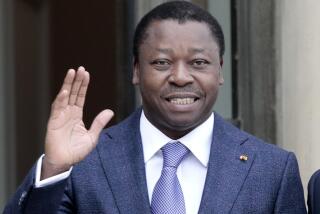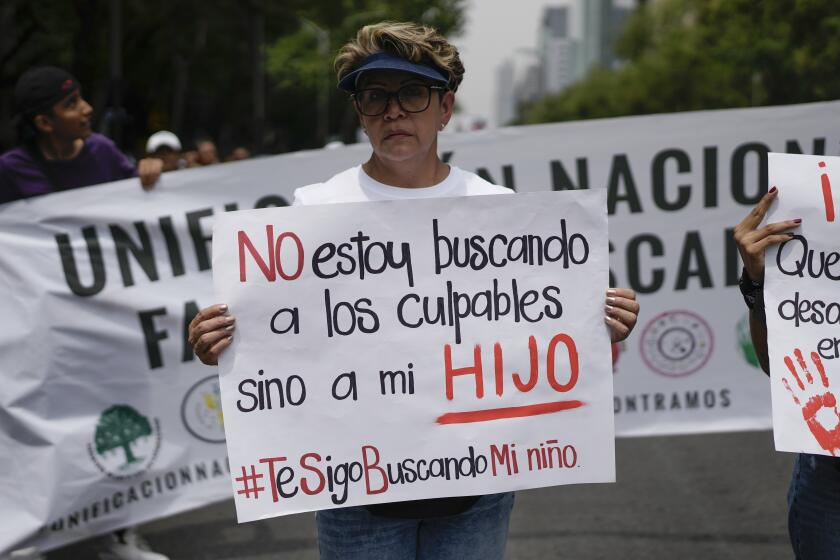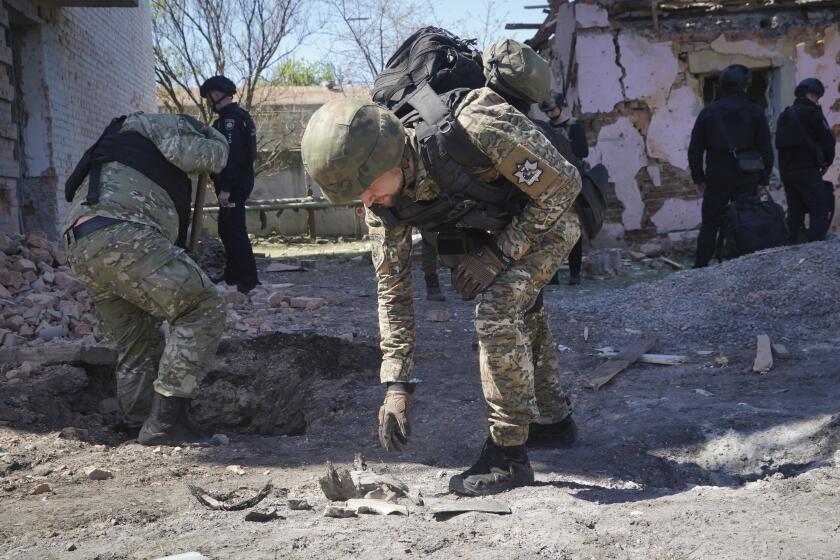It’s a new day in Zimbabwe, but even with a new president it sure feels like old times
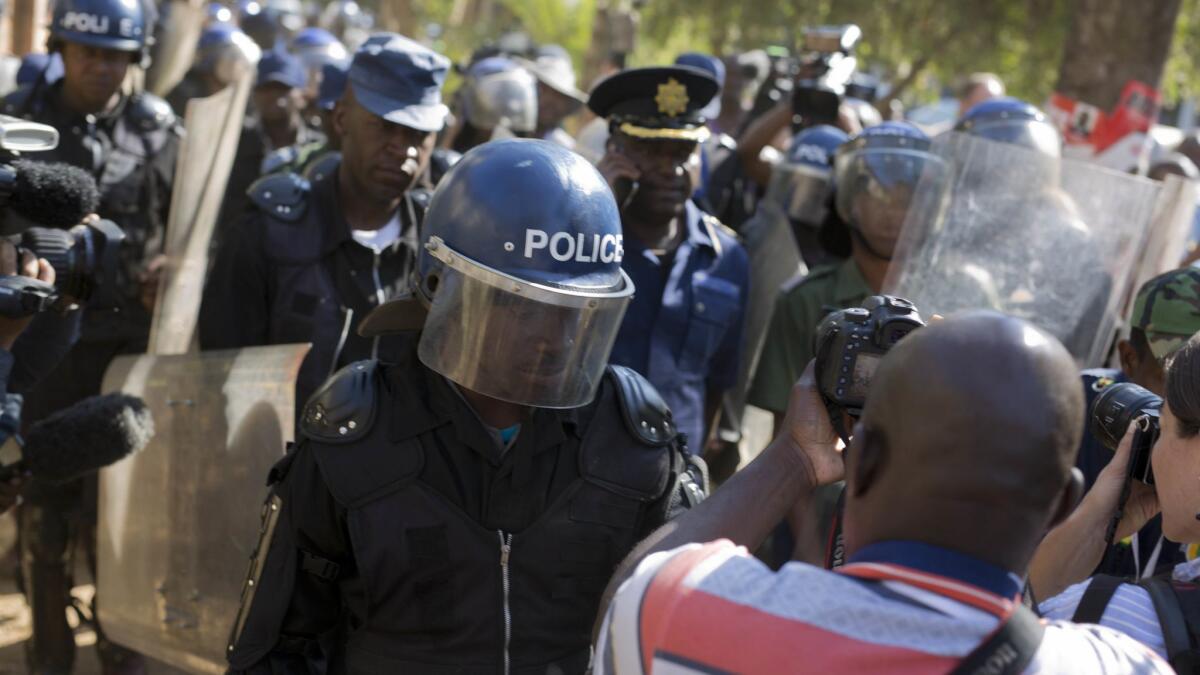
On Friday morning, Zimbabwe woke up to the news that President Emmerson Mnangagwa had been declared the winner in this week’s historic polls, elected by a narrow margin on promises to usher in a new era of openness and prosperity after decades under the failing leadership of Robert Mugabe.
Life trickled back into downtown Harare after a tense few days in the capital, but the mood was a far cry from the elation on the streets in November when the military rolled into town and forced then 93-year-old Mugabe to resign.
As Mnangagwa stepped into Mugabe’s place, many Zimbabweans were willing to overlook the new leader’s longtime allegiance to the strongman, hopeful it was the beginning of the end of the economic hardship and political suppression they had endured for years.
Now many are unsure where they stand. After a peaceful election that saw voter turnout of more than 70%, soldiers opened fired on opposition protesters and civilians in Harare on Wednesday, killing six people and injuring more than a dozen.
The deadly post-election violence has cast doubt on Mnangagwa’s campaign promises of delivering a “new Zimbabwe” and presenting himself as a break from the past and its repressive policies.
“Clearly, this is no new dispensation at all. It’s the same old government whose security forces are prone to abuses with impunity,” said Dewa Mavhinga, Southern Africa director for Human Rights Watch. “We are back where we were before the coup in November.… This smokescreen has been shattered.”
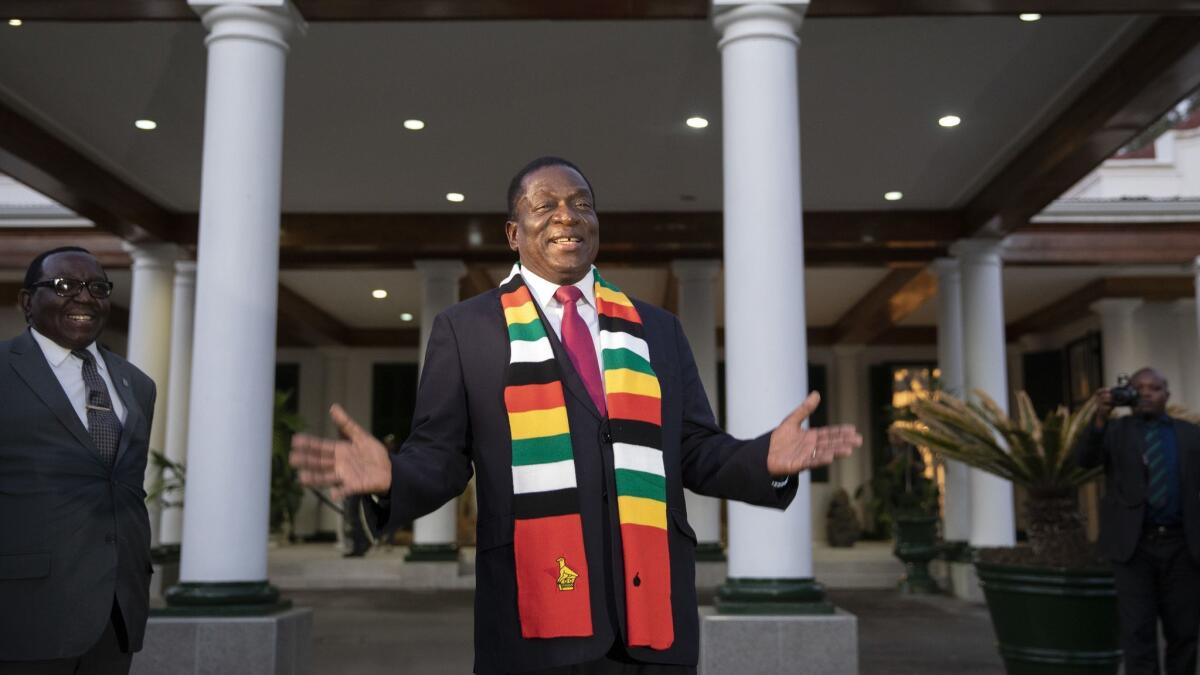
Fears about the president elect’s heavy-handedness were renewed Friday when police in full riot gear appeared on the verdant lawns of a Harare hotel for an opposition news conference. Police initially told international and local media to leave, but then pulled back themselves.
Mnangagwa quickly distanced himself from the sight of police wearing helmets and carrying plastic shields surrounding journalists, commenting on Twitter that such scenes “have no place in our society.”
“We won the election freely and fairly, and have nothing to hide or fear,” Mnangagwa said.
But Nelson Chamisa, the 40-year-old opposition leader who has insisted throughout the week that he won Monday’s polls, seized the opportunity. According to official results, Chamisa secured 44.3% of the vote, while Mnangagwa won 50.8%.
“This cannot be the behavior of people who have won. It can only be behavior of somebody who has lost,” Chamisa told reporters after police left the scene. He called the official results “fraudulent” and “illegitimate.”
“If you go around the country, you will find there is no celebration, no jubilation. If anything, today is a day of mourning,” Chamisa said. “Mr Mnangagwa did not win the election in this country.”
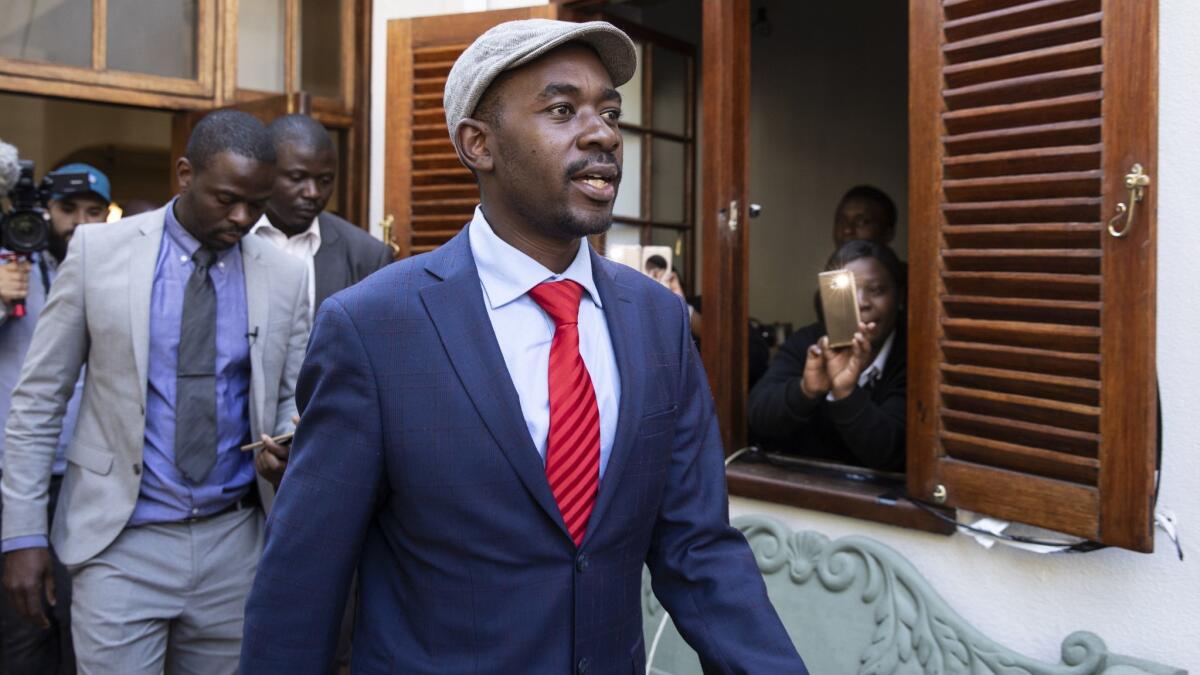
Chamisa said he will challenge the official results in court, but it seems unlikely he will be able to disrupt the elections process and prevent Mnangagwa from forming a government, observers say.
How Mnangagwa manages the fallout of this week’s events could have a lasting effect on what he will accomplish during his tenure. He has said he would open an independent commission to look into the army’s actions, and has welcomed his opponents to challenge the election results.
Holding free, fair and credible elections has been seen as crucial to giving his administration the stamp of legitimacy needed to draw in foreign donors and investors to boost the country’s ravaged economy.
While it’s too early to know how much damage has been inflicted to Mnangagwa’s credibility, the president “will have to carve a fairly impeccable path forward” to reassure investors, said Charles Laurie, the head of country risk at Verisk Maplecroft in London.
American and European election observers, who were invited to monitor the vote for the first time since 2002, have yet to issue their final assessment. Preliminarily, the teams have praised the peaceful vote, but also raised concerns about voter intimidation and the lack of a “level playing field” between the ruling ZANU-PF party and its opponents before the polls.
Now, Laurie says, those groups face a decision between giving a nod of approval to an electoral process dogged by violence and claims of vote-rigging, or deeming the new administration to be illegitimate, a move that would push the country deeper into pariah status and ultimately harm ordinary Zimbabweans.
“It’s a very bleak outcome,” he said.
Of course, many ZANU-PF supporters were simply enjoying the moment Friday, and looking forward to seeing what their new president will do.
“I’m very happy my president has won. He deserves it. He listens to our problems,” said Nyaradzo Mavangira, a 36-year old engineer mechanic who lives in Harare.
“The problem with Zimbabweans now is that they want to blame Mnangagwa for Mugabe’s mistakes. He is not Mugabe. We should give him a chance.”
Mahr is a special correspondent.
UPDATES:
2 p.m.: The story was updated with staff reporting.
This article was originally published at 7 a.m.
More to Read
Start your day right
Sign up for Essential California for news, features and recommendations from the L.A. Times and beyond in your inbox six days a week.
You may occasionally receive promotional content from the Los Angeles Times.
